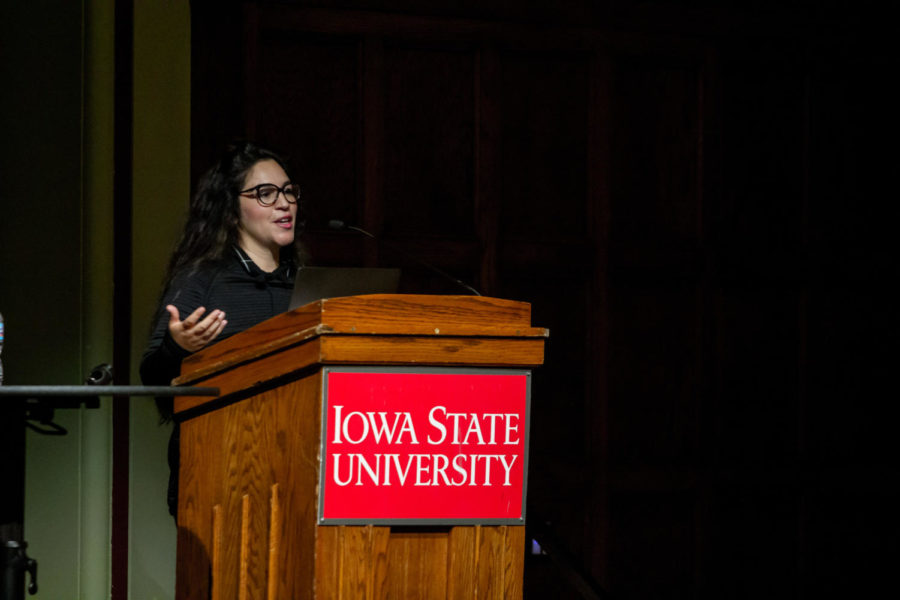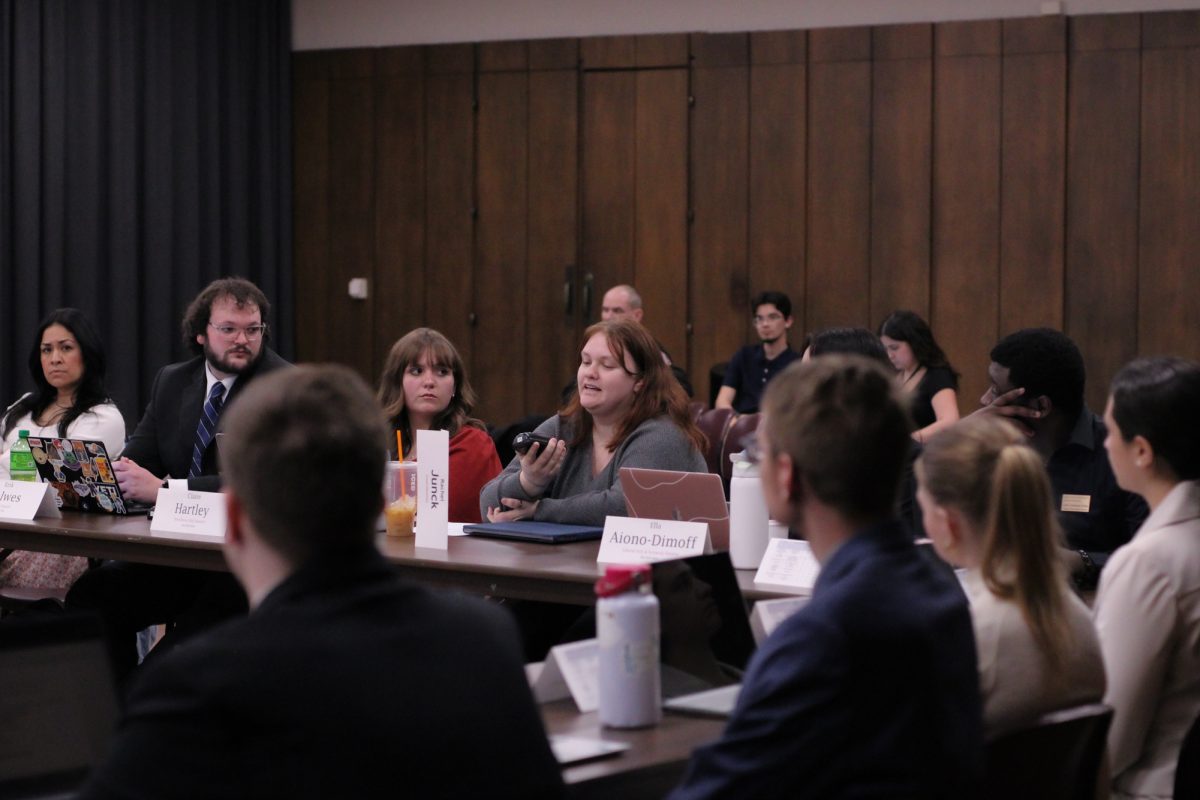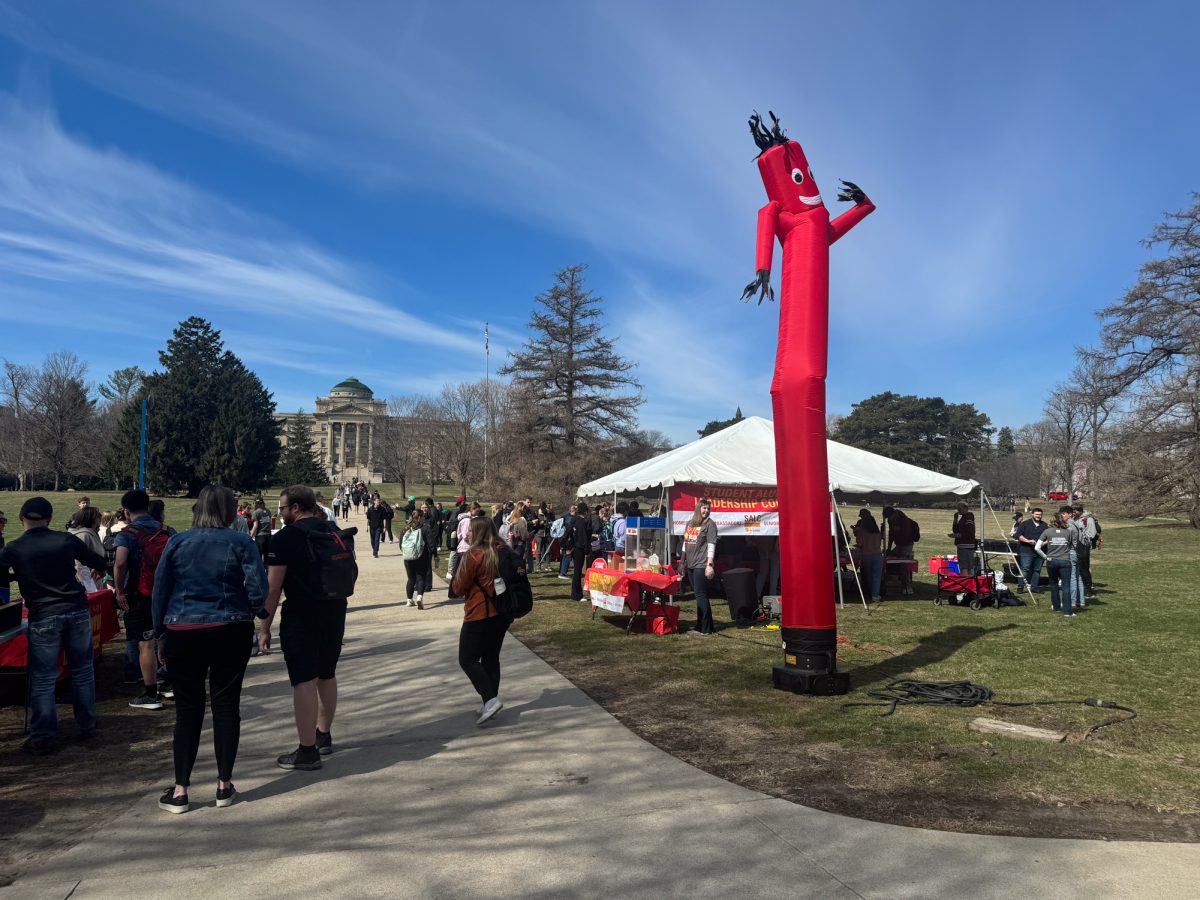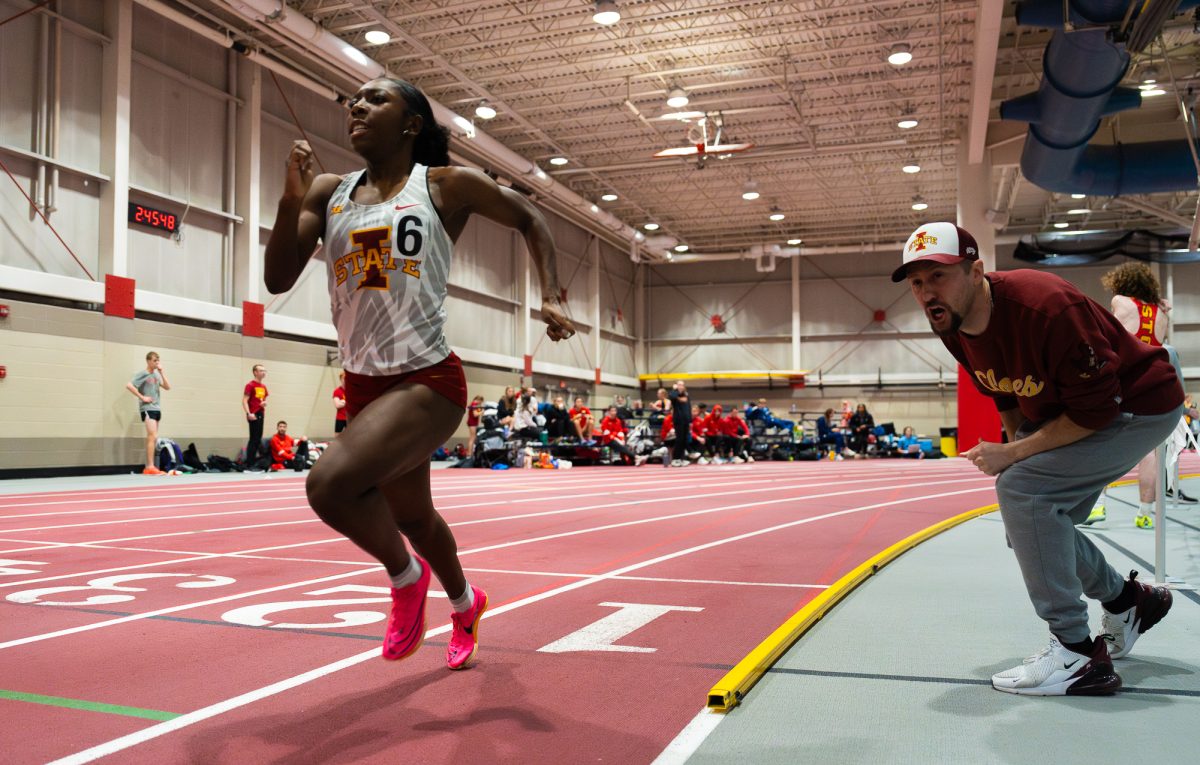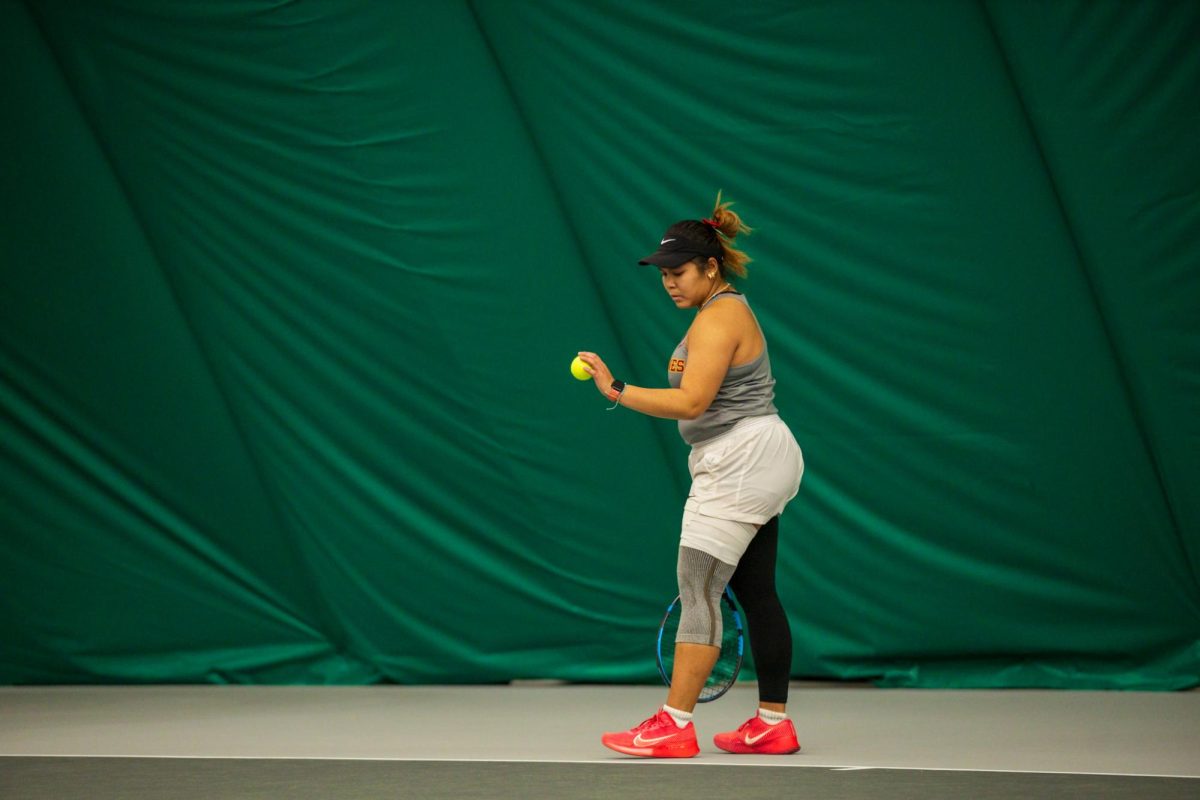Lecture discusses how ethnic studies course combats xenophobia in schools and communities
Cati De los Ríos talks to students about literacy in climates of xenophobia, in the Great Hall on Sept. 17.
September 17, 2019
Editor’s note: Some information has been removed for safety reasons of the individuals involved.
Cati de los Rios from the School of Education at the University of California, Davis, presented a lecture titled, “Literacy as Action in Enduring Climates of Xenophobia” Thursday in the Great Hall of the Memorial Union.
“So today I’m not here to show you a blueprint of how to do this in Iowa, but rather a vision of this work,” de los Rios said.
As an introduction to de los Rios’ research she did at a high school with an ethnic studies program, she gave the reasons why she became an educator in the first place.
De los Rios came from four generations of teachers, who preached for social inclusion within the education field. De los Rios was taught to work for a socially just world, and that literacy is in itself is a social action. She went on to explain literacy gives power to those who are oppressed. De los Rios explained this background of activism within her educator family members shaped her moral compass and gave her reason for teaching and to eventually become a researcher.
De los Rios’ work started with the idea that anti-immigrant legislation and bans were a direct attack on the education system, and negatively affected all children, especially Latinx children within this sociopolitical climate. This started when checkpoints appeared in Southern California in 2007-2013, where police would racially discriminate against the Latinx community, specifically the immigrant community, causing fear to spread due various repercussions of such as impounded vehicles and even deportation. Due to these traumatic events taking place, de los Rios decided to make an ethnic studies course in her school district.
When de los Rios was designing her ethnic studies course and research at La Feria High School in La Feria, California, she used many aspects of design such as social design, community based design, formative interventions, participatory action research and youth participatory action research.
De los Rios began her work with this course by introducing the Las Posadas Project. Posadas is originally a religious re-enactment, however, her project is not based off of religion, but community, literacy and Latinx culture. Due to this project, ethnic studies at La Feria became so much more. This project caused a chain reaction of undocumented people becoming advocates for human rights in the La Feria community.
In the 2014 snapshot de los Rios provided, she explained how in this ethnic studies course the students read cultural excerpts, legislative readings at the state and federal level, asked their community the importance of organizing collectively and made videos also explaining the benefits of organizing.
De los Rios showed the audience of this lecture a video by a student in the ethnic studies course, about Las Posadas, where they see 200 members of a community rallying together, marching and bringing political awareness for immigrant rights.
“We organize today, and march tomorrow, because our lives depend on it,” Rodriguez said in the video.
De los Rios explained social movements are a type of learning and teaching, where students learn from family and community instead of traditional studies in this critical social analysis.
However, de los Rios explained Las Posadas changed when President Trump entered office, where he showed prejudice against Muslims and people of color. Due to this, schools and teachers have failed to engage in sociopolitical climate in schools.
De los Rios then showed the audience a snapshot into the 2017 Posadas Project. After students in the course looked at multimodal and multilingual texts, as well as looking at advocacy think tank websites, they realized the importance for advocacy against xenophobia, racism and discrimination against lower socioeconomic statuses. Las Posadas was important back in 2014, but it became even more important now within these issues in the United States federal government. Las Posadas became a ritualized form of justice and empowerment, and it all started with this ethnic studies program.
“This project from bringing the academic part which is the reading, writing, research part, with the mixture of art, music and activism, unity with families, teachers, and the community, to me that’s what sanctuary looks like,” said de los Rios.
Following the lecture there was a Q&A session where the audience members were encouraged to discuss their questions with the people around them, and then pose their question to de los Rios.
“I used to work with a number of immigrants from various countries and I considered them my friends […] but I’m also concerned with immigration […] twenty five tons of fentanyl were confiscated at the Mexican border, coming from China […] I’ve talked to a police officer in Des Moines who said that there is a gang in Des Moines that is drug trafficking.. They pray to their Pagan gods to protect them from the police, and animal sacrifices are being sacrificed in Des Moines […] There is a lot of activity going on that people don’t know about […] How can we balance our responsible immigration, but also protect our society at the same time?” asked an audience member.
De los Rios responded to the audience member’s question with suggestions to research more about the subject.
“There are a lot of immigration scholars, political scientists and urban studies researchers that have been tackling the questions and concerns that you have,” de los Rios responded. “I am a literacy researcher and I work with young people in schools and I can tell you first hand that the schools that I have been in, specifically in this context, are not drug traffickers, no one is a drug cartel member.
I think making really broad statements about immigrants in general and connecting them to drug trafficking is problematic. An important note is that immigration has been declining since the last twenty to thirty years. It was at an all time high in the seventies, eighties, and nineties, and in the last fifteen years the numbers of folks crossing the border are a lot lower than people are led to believe. I don’t know how to respond to you, but the first thing I would do is get much more informed in terms of folks coming in.”


